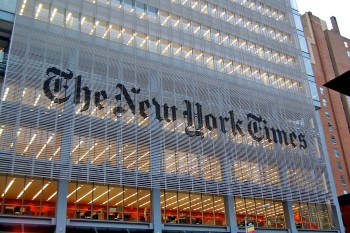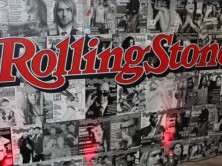
(Credit: Wikipedia, Haxorjoe)
The New York Times published a clarification to an essay included in its 1619 Project, which focuses on the history of African slavery in America.
The Aug. 14, 2019 essay, “Our democracy’s founding ideals were false when they were written. Black Americans have fought to make them true,” was written by Nikole Hannah-Jones.
The March 11 editor’s note reads, “A passage has been adjusted to make clear that a desire to protect slavery was among the motivations of some of the colonists who fought the Revolutionary War, not among the motivations of all of them. Read more.” iMediaEthics has written to the Times.
That editor’s note links to a lengthy “update” about the essay, noting that a passage in it “Sparked a great deal of online debate.”
“The passage in question states that one primary reason the colonists fought the American Revolution was to protect the institution of slavery. This assertion has elicited criticism from some historians and support from others,” the update reads. “We stand behind the basic point, which is that among the various motivations that drove the patriots toward independence was a concern that the British would seek or were already seeking to disrupt in various ways the entrenched system of American slavery.”
What does the New York Times change, then, if it stands by the essay’s point? The Times changed wording that suggested “all of the colonists” wanted to protect slavery. “We recognize that our original language could be read to suggest that protecting slavery was a primary motivation for all of the colonists. The passage has been changed to make clear that this was a primary motivation for some of the colonists,” the Times wrote.
The Times previously published a correction Aug. 15, 2019 reading: “An earlier version of this article referred incorrectly to the signing of the Declaration of Independence. It was approved on July 4, 1776, not signed by Congress on that date. The article also misspelled the surname of a Revolutionary War-era writer. He was Samuel Bryan, not Byron.”







Comments Terms and Conditions